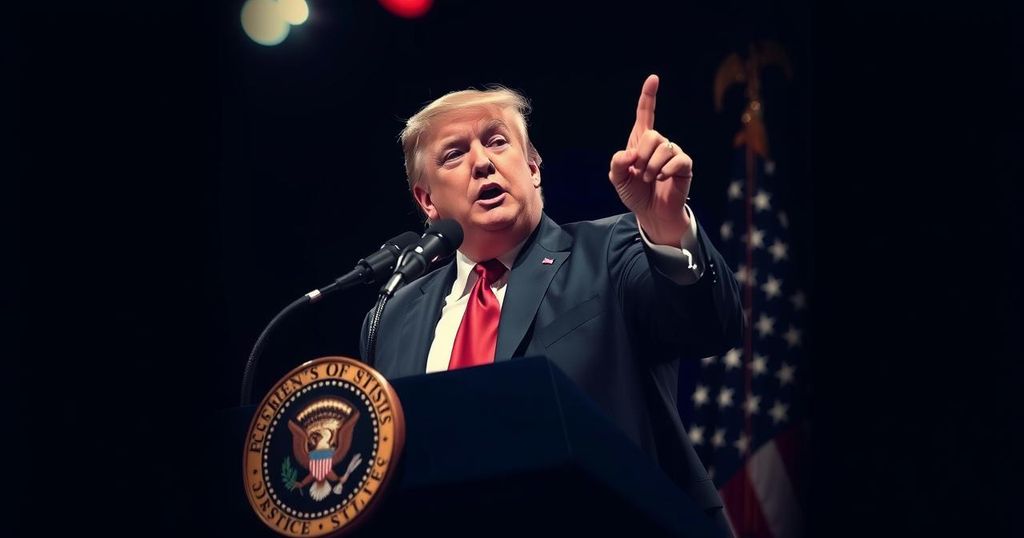Donald Trump Elected as the 47th President: Implications and Reactions

Donald Trump has been elected as the 47th U.S. president, winning at least 277 Electoral College votes against Vice President Kamala Harris. His victory, which comes after a contentious 2020 term, highlights public frustrations over the economy and foreign policy. Analysts caution that Trump’s return could lead to increased domestic and international tensions due to his divisive strategies and aggressive policy promises.
Donald Trump has been elected the 47th president of the United States, securing at least 277 Electoral College votes, as reported by The Associated Press. His victory marks a significant comeback following the contentious 2020 election, where he faced widespread criticism for his refusal to accept the results, which culminated in a violent incident at the U.S. Capitol. In this election, Trump defeated incumbent Vice President Kamala Harris in what turned out to be a less competitive race than anticipated, winning key states including Wisconsin, Georgia, North Carolina, and Pennsylvania. Trump’s campaign capitalized on a national atmosphere of anger and dissatisfaction, particularly regarding economic issues such as inflation under President Joe Biden and the United States’ foreign engagement, especially with respect to the war in Ukraine and its support for Israel. His assertive and often divisive rhetoric attracted significant support from voters who felt marginalized and frustrated by the political establishment. Upon his victory, Trump proclaimed he possessed “an unprecedented and powerful mandate” from the electorate in light of these concerns. Internationally, Trump’s return to office may complicate geopolitical dynamics, as he has previously indicated an intention to rapidly resolve ongoing conflicts, including the war in Ukraine and tensions with Hamas in Gaza. His long-standing support for Israeli Prime Minister Benjamin Netanyahu and his hawkish stance toward Iran suggest a shift in U.S. foreign policy that could elicit mixed reactions globally, particularly from NATO allies and the U.S.’s relationship with China. In addition to international issues, Trump is expected to pursue an aggressive domestic agenda that includes substantial changes to immigration policy and a punitive approach towards perceived political adversaries, thus raising concerns for increased divisiveness within the United States. The electoral outcome reflects a deeply polarized society, and analysts suggest that Trump’s victory is representative of long-standing social grievances exacerbated by recent economic challenges. Experts have cautioned that the implications of his presidency could lead to a more dangerous international and domestic environment, with policy decisions likely to be made with a focus on personal vendettas rather than coherent national strategy. Therefore, as Trump prepares for his anticipated return to the White House, significant uncertainties loom both in domestic governance and international relations.
The article centers on the recent election in which Donald Trump has been elected as the 47th president of the United States. This election is particularly notable as it represents a comeback for Trump after his previous defeat in 2020. His return to power is highlighted by various factors, including voter dissatisfaction with the current administration’s handling of the economy and foreign relations. Additionally, it touches upon the implications of his campaign rhetoric and strategies that resonated with a breadth of voters in a divided nation.
In conclusion, Donald Trump’s election as the 47th president underscores the significant electoral shifts as voters expressed dissatisfaction with current conditions. His victory reflects ongoing socioeconomic frustrations and is likely to influence both domestic policymaking and international relations in ways that may heighten divisions. As his administration approaches, it carries the weight of expectations for radical changes and poses challenges that will test the resilience of U.S. democratic institutions.
Original Source: www.aljazeera.com







